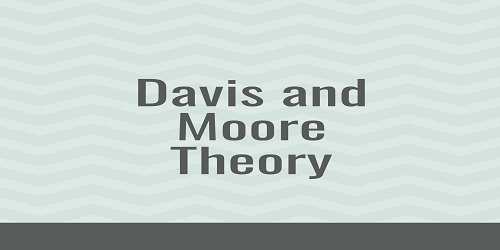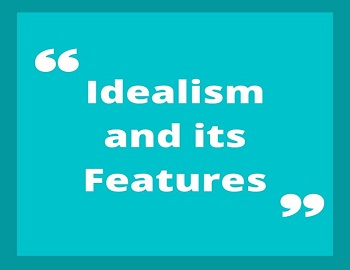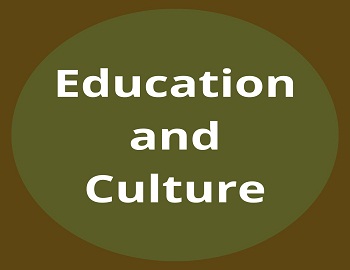Table of Contents
Davis and Moore Theory:
Kingsley Davis and Wilbert Moore have further developed the functionalist theory of stratification. Both are eminent American sociologists and they were students of Talcott Parsons. Davis and Moore elaborated on this and try to examine how stratification becomes effective in any society. In this way, they attempt to extend Parson’s argument. They support Parson’s view that the basis of the existence of societies is order and stability.
All societies have their own functional prerequisites which help them survive and operate effectively. Societies are not a mere collection of individuals. These individuals have to perform specific tasks so that the requirement of society are fulfilled. Society needs workers, industrialists, managers, teachers, policemen, artisans, students, and so on. Different individuals who have specialized skills do these different types of work. Therefore, the first functional prerequisite of any society is of allocating these different roles effectively. This will ensure that the right people are placed in the proper positions.
There are four aspects of the above-mentioned functional prerequisite:
- Firstly, all roles in society must be filled. All societies have different types of occupations. These occupations are necessary for their existence. Hence it is necessary to ensure that these occupations are filled.
- At the same time, merely filled-up occupations are not enough. If the wrong people (i.e. people who do not have the requisite skills) are selected for the tasks there will be instability in society. Therefore the second factor is that the most competent people must fill in the positions.
- Thirdly, in order for the best people to be selected for the job it is necessary to train them for it. Training, therefore, is an effective means of ensuring that the best people are selected.
- Lastly, the roles must be performed conscientiously. This is very important for ensuring effective performance in the roles.
Hence all these four factors are necessary in order to meet the functional prerequisites of a society.
Functions of Stratification:
Davis and Moore state that all societies need some mechanism for ensuring that the best people are selected for the positions and they perform well. This system is effective because it offers unequal rewards and privileges to different positions in society. If all people are given the same rewards then there will be no motivation for people to work harder. There may also be a tendency for people to avoid taking up positions of responsibility or challenging jobs. Therefore, stratification is necessary for the efficient functioning of the system.
The main contributions of a system of unequal rewards are two-fold. Firstly it motivates people to fill certain positions. When positions carry higher rewards people put in greater efforts to become qualified for positions. Secondly, the rewards must be unequal even after fulfilling the position so that the persons who are appointed are motivated to improve their performance further. In this manner, the system of stratification, based on unequal rewards, is beneficial for societies.
Davis and Morre explain that this system of stratification holds true for both modern societies based on competition and for traditional societies that are based on ascription.
In modern societies, people occupy positions according to their skills and qualifications. Those who are better qualified get better rewards and they occupy positions of prestige. In traditional societies positions are ascribed through birth. In traditional caste-oriented Indian Society people occupied their positions not due to their competence but through the status they had by birth.
Basic Propositions of Davis and Moore:
In modern societies, the basis of status is through achievement and not ascription. Such societies are more dynamic and can fulfill their functional prerequisites. In order to achieve this Davis and Moore note that there are some propositions that are common for all these societies. These are-
- In every society, certain positions are functionally more important than others. These positions carry greater rewards and higher prestige. For example, a position in the Indian Administrative Service is considered to have more prestige than other jobs.
- Only limited people have the necessary merit or talents to perform these roles. We can see that in the case of the IAS examinations, several thousand appear for the examinations but only a handful is successful.
- In most cases, these positions require a lengthy and intensive training period. This involves sacrifices on the part of the people who acquires these posts. According to Davis and Moore, this involves sacrifice on the part of the candidate. Hence they must be rewarded for their sacrifice through higher financial rewards and greater prestige in society.
In brief, Davis and Moore have carried forward Parsons’ views on stratification by clarifying the reasons for social inequality. They have tried to show that the system of stratification based on unequal rewards and prestige is necessary for maintaining order in society and ensuring its progress.
Criticism of Davis and Moore’s Theory:
On the face of it, the Davis and Moore theory appears rational and realistic. This is in contrast to a society where there is no mobility as people are assigned roles in accordance with their birth. In India too the Constitution grants equal rights to all citizens. This is similar to most modern societies where a person’s ability is more important than his birth. Under these circumstances, the Davis-Moore theory appears realistic as it offers an explanation for the existing inequalities in society.
There have been several criticisms of this theory:
It is widely recognized that of the critical articles Melvin Tumin’s was the most comprehensive. Tumin began his criticism with the statement that functionally important positions are highly rewarded. While it was a fact that rewards were unequal as some received more reward and prestige than others it could not be categorically stated that these positions are functionally more important. It is possible that some workers in a factory are more necessary for maintaining production than their managers are, though the managers are better rewarded. In such cases, if the workers are removed production will be hampered but if some managers are removed it may be still possible to maintain production. Therefore, how could the functional importance of a position be measured? Davis and Moore have not provided, the means of measuring the functional importance of these positions. The role of power in determining the importance of positions and thereby appropriating higher rewards is also important means of determining the rewards. Hence, power plays a more important role in determining higher rewards than functional importance.
Tumin challenges the justification of higher rewards on the basis that these positions involve greater training. He argues that training does not necessarily mean sacrifice as the individuals also learn new skills, gain knowledge and thereby benefit. Moreover, the rewards for such cases are disproportionate to the sacrifices made during training.
The proportion that unequal rewards help to motivate people in improving their work is also not true according to Tumin. In reality, there are barriers to motivation. The system of stratification does not allow talented people to have equal access to better opportunities. Social discrimination is present in every society and this acts as a barrier. There is every possibility that in a system of unequal rewards, those who receive higher rewards will ensure that their children get the same rewards. They will also create barriers to prevent others from getting into the same positions that their children are in.
T. B. Bottomore in his Elite and Societies shows that even in developed countries such as Britain and France where the stratification system is more open an overwhelming majority of the civil servants were children of civil servants.
Tumin notes that motivation through unequal rewards can be possible in a system “where there is genuinely equal access to recruitment and training for all potentially talented that differential rewards can conceivable by justified as functionally important. This is rarely possible in most societies.” Hence, he asserts that “stratification systems are apparently antagonistic to the development of such full equality of opportunity.”
Tumin, therefore, argues that those already receiving differential positions can manipulate functionally important positions. Hence, Tumin tries to prove that the functional theory of social stratification is not realistic.









Comments (No)